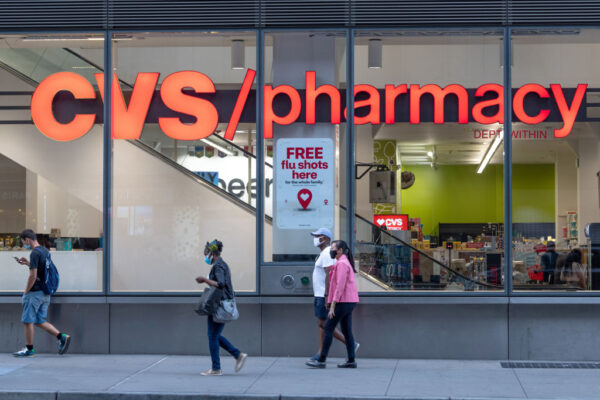
Report: Whistleblower accuses CVS of “calculated and widespread” drug pricing scheme targeting elderly patients – MedCity News
CVS Health intentionally prevented certain Medicare beneficiaries from accessing less expensive, generic prescriptions, according to a whistleblower lawsuit from a former senior CVS executive. Documents from the lawsuit were recently unsealed,.
“In doing so, CVS Health has ensured astonishing profits for itself while passing the increased costs onto taxpayers and Part D beneficiaries,” the whistleblower charged in the complaint filed in March and whose contents were published by Stat news on Thursday.
The lawsuit alleges that the fraudulent scheme disproportionately affected elderly patients with end stage renal failure and forced many beneficiaries of the SilverScript Part D program to go without critical treatment because they were unable to access generic versions of necessary drugs at affordable costs. SilverScript offers prescription drug plans for Medicare Part D. CVS Health denied the allegations.
The case shines a harsh spotlight on pharmacy benefit managers, often derided as the middleman in the industry especially given how large PBMs are owned by entities that are also payers that win if patients pay more for drugs. In this case, CVS Caremark, the PBM is owned by CVS Health, which also owns insurer Aetna. After initially declining to do so, the Federal Trade Commission announced earlier this month that the agency is launching an inquiry into PBMs and alleged conflicts of interest.
Medicare Part D helps patients pay for generic and brand name drugs. Unlike other Medicare programs that are administered by Medicare itself, Part D is offered by the private companies that negotiate prices with the government.
The whistleblower complaint alleges that “behind closed doors CVS Health and its subsidiaries had sold off SilverScript Part D formulary access to the [Single Source Generic/Do Not Substitute] Drug Makers who were intent on obstructing competition for their blockbuster drugs.” A formulary is a list of drugs covered by a health plan and is negotiated by pharmacy benefit managers. In this case, that PBM is CVS Caremark, which controlled 32% of market share in 2020 and is owned by CVS Health, which also owns Aetna.
CVS has been participating in the scheme to defraud elderly patients since 2015 and the practice continues today, according to the lawsuit.
“As such, the CVS Health entities’ [Single Source Generic/Do Not Substitute] Scheme has aided and abetted the Drug Makers competing not solely on the basis of innovation, but rather on their ability to obstruct access to generic competition,” the complaint said.
In fact CVS Caremark struck a deal with certain drugmakers to disallow CVS pharmacies from stocking generic versions of two drugs to treat Hepatitis C, called Harvoni and Epclusa. That is just one of the many drugs involved in the case. Others include Copaxone, Exelon, Voltaren Gel, and several drugmakers, including Gilead, Teva, Novartis, and others.
Part of the scheme involved SilverScript call center employees misinforming patients with “outright falsehoods” that choosing name brand drugs would be less costly than generics.
One exhibit shows the transcript of a phone call between a CVS Customer Care provider and a patient trying to obtain the generic form of a drug for asthma called Advair Diskus. When the patient insists that she wants a generic version of Diskus, the customer care representative says the only option available is the brand name version of the drug. Upon request of the patient, the CVS employee speaks with someone on the Care Exception Review Team to see if the patient qualifies for an exception. Then the CVS employee advises the patient that the brand name drug costs less than the generic version the patient is seeking.
“Normally in cases when it says specifically dispense the brand, that means we’re giving you the brand instead of the generic because something is going on with that generic,” the CVS care provider tells the patient. A confused patient replies, “What?”
The care provider says, “If I knew, I promise I would tell you. I really don’t know that it’s just what she said, but it has a specific note. And even when they pulled it up at the pharmacy, it literally says dispense brand.”
The patient, puzzled, said she would consult with her doctor.
A spokesperson for CVS said in an emailed statement, “We intend to vigorously defend this lawsuit and are pleased that the government has chosen not to participate in the lawsuit.”
There are many entities that see the current PBM structure as unsustainable and unethical, and upstart pharmacy benefit managers such as Capital RX, founded in 2017, have called out large PBM operators like CVS Health.
Aside from launching an inquiry into PBMs, the FTC on June 7 said that it will “ramp up enforcement against any illegal bribes and rebate schemes that block patients’ access to competing lower-cost drugs.”
The case is 19-cv-2553 in the District Court of Pennsylvania.
Photo: Alexi Rosenfeld/Getty Images